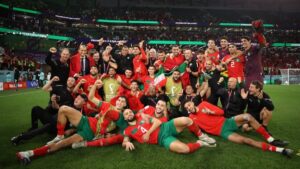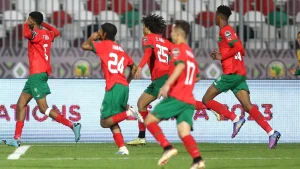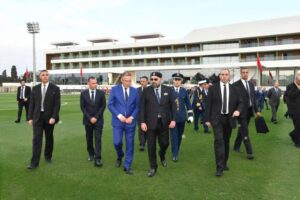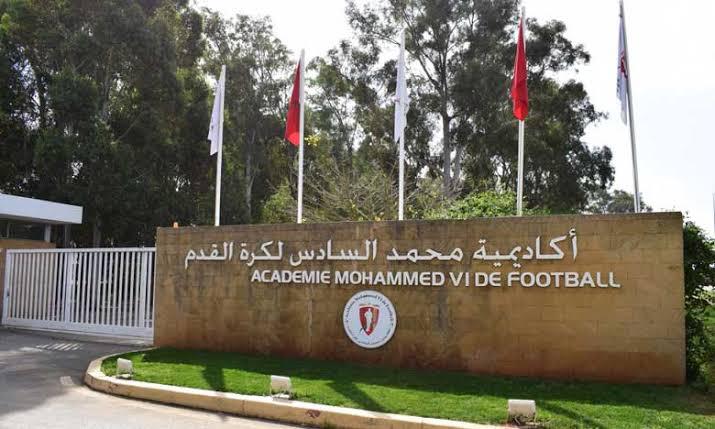Morocco football has been on an upward trajectory for the past 5 years, evidenced by the performance of their teams in various international tournaments.
According to the Royal Moroccan football federation (MRMF,) the success being witnessed is as a result of huge investment by King Mohammed VI which started over 15 years ago, through establishment of modern state of the art stadiums, hiring of technocrats in managing the game and well remuneration of players across all cadres.

Morocco playing as host won the 2018 Africa Nations Championships (CHAN), tournament meant for local based footballers host before defending it in 2020.
It’s after this success that the Atlas lions also qualified for FIFA world in 2018, 10 years since its last qualification.
Though it exited the tournament in group stage, the Atlas Lions qualified for 2022 edition re- writing history as the 1st African country to play in semi finals of the football bonanza.
Also Morocco women’s team will play in this year’s FIFA World Cup in Australia and Newzealand for the maiden time.
At Club level Wydad Athletic Club bagged the CAF Champions league in the 2021/2022 season for a record 3rd time and has also qualified for this year’s final where they are set meet Al Ahly.
Raja Athletic Club on the other hand won the title 1999 for a 3rd time and won also the 2021 CAF Confed Cup.
on the flip side Raja won the CAF Confed Cup twice in 2018 and 2020-2021 seasons, while their counterparts RS Berkane won it 2019/2020 and 2021/2022 seasons.
ASFAR women Club won the CAF Champions League playing at home in 2022.
Establishment of high level of infrastructure, planning ,interest in academies and training centers are some of the key areas in focus.
The Atlas Cubs, who achieved a historic feat at the 2023 Africa Cup of Nations U17 that culminated last Friday in Algeria, where it bagged silver medal, were trained at the Mohammed VI football academy with a total of 9 footballers in tournament originating from the Rabat based Academy.

In the U 17 AFCON team were 5 players from AS FAR academy, 4 from FUS while , MAS, Hassania of Agadir, Ittihad of Tangier and Raja academies produced a player each .
Achieving these results is a demonstration of the role played by the development of Moroccan soccer.
The Mohammed VI Football Academy, was founded in 2009 in Salé, on the instigation of King Mohammed VI, in his letter to the National Sports Conference held in Skhirat on October 24, 2008.
In this Royal letter, His Majesty the King called for the development of a modern and efficient system to organ

ize the sports sector based on the “restructuring of the national sports landscape and the upgrading of sports organizations with a view to their professionalization, as well as the democratization of the bodies responsible for their management”.

The Mohammed VI Football Academy, the jewel that produces Moroccan stars, was built according to criteria that correspond to the best international standards in terms of training centers in order to put in place the conditions for the training of Moroccan talents, enabling them to play in the biggest soccer clubs, whether in Morocco or in Europe.
The achievement of the Atlas Lions which reached the semi-finals of the 2022 FIFA World Cup in Qatar , gives confidence and assurance to all national teams in different age groups, including women’s teams.
The Royal Moroccan Football Federation (RMFF) continues its serious work in implementing the role of training centers in all clubs, by providing them with adequate funding to invest in training and by arming them with logistical, material and moral means to better plan the management of national teams.
More so, Morocco is in the race to host the 2025 AFCON as well as the 2030 FIFA World Cup together with its Mediterranean neighbours Spain and Portugal.





